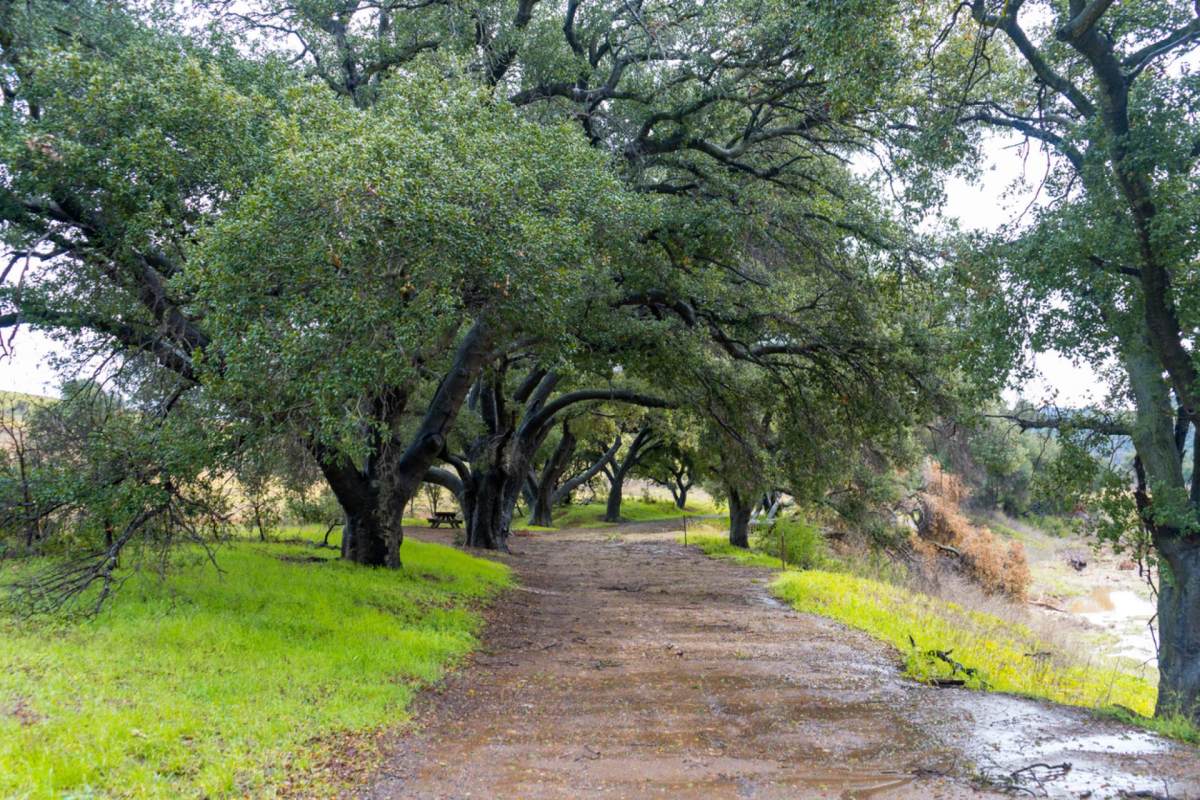A man expressed his outrage on TikTok after a California city planted an invasive plant species in a public space.
In the video, Jessie Dickson (@sacramentofoodforest) showed an oak tree smothered by English ivy (also known as Hedera helix).
@sacramentofoodforest #invasivespecies when you see invasive plants the city planted at the park. You let the city know how they effect native plants. Dont buy English ivy. Plant native. #california #nativeplants #conservation #invasive #englishivy #warning #sign #park #landscape #plant #native #winter #sacramento #cali #botany #fresno #la #sf #invasiveplants #habitat #restoration #plantlover #treelover ♬ original sound - ∞ redakkai
In another clip, a placard read "English ivy kills trees" while Dickson vented his frustration with an impassioned middle finger.
"When you see invasive English ivy the city planted taking over a native oak tree," he wrote in the caption. "Plant native."
English ivy is noted for its ability to grow in shade, making it a useful ornamental plant to place in dark corners of gardens where nothing else will grow. Its large draped leaves also make it an attractive choice for ground cover.
But city authorities and homeowners alike would do well to avoid it in the United States, where it is a potent invasive species.
The ivy is adaptable to soils of varying pH levels, meaning it grows in abundance in multiple habitats. Because it grows so quickly, it easily escapes from gardens and spreads rapidly over nearby vegetation.
Once it takes root, it overwhelms neighboring plants and trees, outshading understory plants and weighing down trees. If the ivy becomes too heavy, tree branches and trunks can give and collapse under it.
Not only is English ivy bad for other plants, but it is also toxic for humans and pets. Exposure to its sap can cause a rash, while cats and dogs that ingest it may experience vomiting, excessive drooling, and diarrhea.
A safer, more ecological alternative is to plant native wildflowers and grasses, as these complement existing landscapes rather than suffocate them.
Plants such as buffalo grass and clover grow natively all over the U.S., meaning that they require less water and synthetic fertilizer. Cultivating them is kinder to soil — which degrades with long-term fertilizer use — and lowers households' water bills.
Some states are starting to wake up to the benefits of native plants, with Colorado offering residents a stipend for replacing manicured lawns with more water-wise native grasses and xeriscaping.
But as Dickson pointed out, some locales have yet to get the memo on invasives such as English ivy.
"Cities in California need to be reminded to not plant invasive plants. So I'm gonna start leaving signs for them," he added in the comments.
"The city planted that? Wtf," a TikToker replied.
Join our free newsletter for easy tips to save more, waste less, and help yourself while helping the planet.









